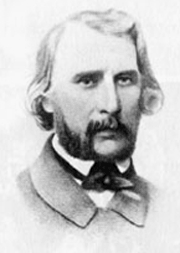On this date in 1818, Russian novelist Ivan Turgenev was born in Oryol, Ukraine, Russia, to a noble family. His mother never spared the whip with Ivan or their 5,000 serfs. He was educated at the universities of Moscow, St. Petersburg and Berlin. He published poetry and short stories, then Papers of a Sportsman (1852), whose empathetic rendering of the plight of serfs reportedly influenced the czar to liberate them. Turgenev spent a month in detention for writing Letter on Gogol, then was exiled to his estates for 18 months.
He and Tolstoy had a tense but long-term acquaintanceship, with rationalist Turgenev spurning Tolstoy’s “charlatanism,” convinced that Russia’s salvation lay in its industry, not its mysticism. Turgenev’s stories and novellas increasingly employed realism. The hostile reaction to his novel Fathers and Sons sent Turgenev into exile. After living in Germany and London, he spent the rest of his life in Paris.
Turgenev coined the word nihilist: “A nihilist is a man who does not bow to any authorities, does not take any principles on trust, no matter with what respect that principle is surrounded.” Rationalism pervaded his works. “[Turgenev] was a Freethinker, and detested the apparatus of religion very heartily,” according to Pavlovsky’s Souvenirs sur Tourgenief in 1887. (D. 1883)


